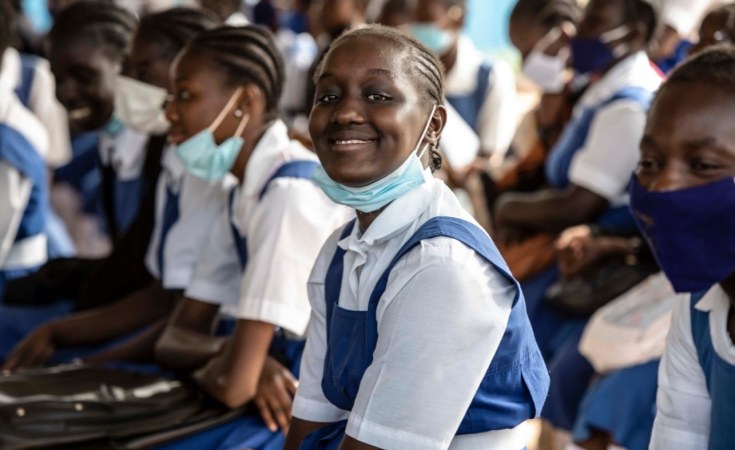"When you educate a girl, you educate a nation." This African proverb resonates with the values passed on to me by my parents and guides my determination to drive change in the region through the education and empowerment of girls and women.
Adolescence is a critical tipping point in the lives of many girls. Decisions made for them at this age can have life-long implications for their health, skills, economic opportunities, voice, and personal agency. Far too often, choices are made that set-in motion a disadvantage for these girls that will persist throughout their entire lives. A multitude of factors throughout a woman's life cycle often combines to prevent them from realizing their potential: high fertility rates, early marriages and inadequate access to family planning services, low educational attainment, weak job opportunities, and restrictive social norms and laws.
Over the past decade, countries across Western and Central Africa have made considerable progress in accelerating gender equality, promoting girls' education, championing legal reforms, improving livelihood opportunities, and developing more inclusive financial systems. The recently released Women, Business and the Law report 2023 highlights the significant progress made by the region in the last year, with five economies—Benin, the Republic of Congo, Côte d'Ivoire, Gabon, and Senegal —enacting positive legal changes. Notably, Côte d'Ivoire and Gabon recently lifted all legal restrictions on women's employment.
We know, however, that progress in some areas has not fully translated into lifting girls and women in all areas. Some statistics are startling: nearly six out of ten girls in Western and Central Africa are still not in secondary school, two out of ten bear a child as teenagers, and nearly half believe that a husband is justified in beating his wife. A woman in the region earns significantly less than a man, regardless of whether she is a farmer, wage worker, or entrepreneur. Furthermore, the continued consequences of the COVID-19 pandemic, the growing effects of climate change and the existing realities of regional conflicts also risk increasing existing inequalities.
We have known for quite some time that women's economic empowerment fuels economic growth, provides women with income to invest in their family's health and education, increases household food stability and resilience, and strengthens women's decision-making power in their homes, communities, and societies. But our efforts have not been enough: we need to work harder, do more, and reach higher.
This is why the World Bank is stepping up its commitment to accelerating gender equality in the region. We have just launched a Regional Gender Action Plan for Western and Central Africa 2023-2027. By putting gender at the nexus of our efforts, we aim to support countries in delivering greater results around four priorities: (1) closing the earnings gap, (2) empowering adolescents and women to reduce fertility rates, (3) reaching gender parity in basic education, and (4) reducing gender-based violence.
For instance, Niger reduced by half the number of girls dropping out of school and getting married before graduation by providing girls with an allowance for food and housing to stay with host families closer to their schools through the Sahel Women's Empowerment and Demographic Dividend (SWEDD) project. The intervention is now implemented in Benin, Burkina Faso, Cameroon, Chad, Côte d'Ivoire, Guinea, Mali, Mauritania, and Niger and seeks to empower women and adolescent girls by providing access to quality education and reproductive, child and maternal health services.
In Nigeria, the Adolescent Girls Initiative for Learning and Empowerment (AGILE) project supports the education and the empowerment of 20 million young girls and mothers in 18 states by providing trainings to adolescent girls in secondary schools to strengthen socio-emotional skills and digital literacy and improve learning, sexual and reproductive health, and labor market outcomes. AGILE also works with traditional and religious leaders to change social norms and builds schools closer to the communities where they are needed.
These are a few examples of how countries can advance gender equality and promote inclusive growth in the region. Now is our opportunity to deliver results at scale for an equitable tomorrow. While adolescence is a time of great vulnerability for girls, it is also an ideal point to disrupt the poverty cycle and leverage development efforts. Educated and empowered girls and women recognize their inherent worth and will fuel sustainable economies and benefit societies and humanity at large. Let us help these girls and women fly with both wings and raise up a continent.
Join our conversation on March 8 on "Empowering adolescent girls for economic transformation in Western and Central Africa."


